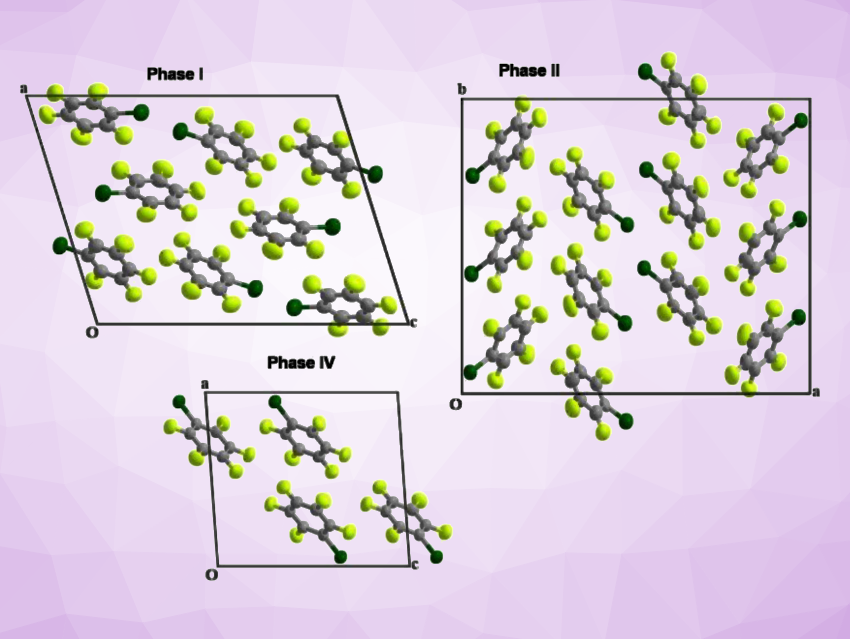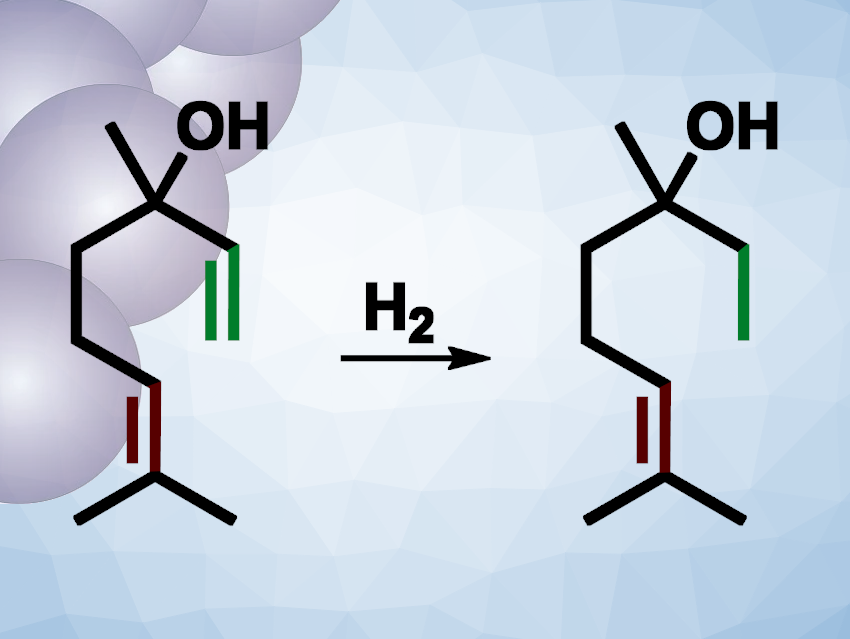- Welcome to this week’s weekly research news challenge!
Test your knowledge and stay sharp with our quiz on the latest research. Answer three questions about this past week’s news to see how well you’re keeping up with the science world around you.
 Question
Question
How many known solid-state phases does bromopentafluorobenzene (C6F5Br), an interesting model compound for studies of non-covalent interactions, have?
See answer
Four, and there are solved crystal structures for three of them. The complex phase behaviour of the compound has made it challenging to solve the fourth structure so far.
 Question
Question
Replacing plastics with bio-based composites can help reduce reliance on fossil fuels and offer new useful properties.
Which functional group in a delignified wood skeleton, with microchannels and holes filled with a polymer, can be used to create a flexible, shape-changeable transparent wood composite material?
See answer
Acetal groups. Their dynamic formation and breakage allows shaping by heating and cooling the material.
 Question
Question
Frustrated Lewis pairs (FLPs), combining Lewis acid and base sites in specific configurations, have recently been widely used in homogeneous catalysis.
Why can the Lewis acid and the Lewis base in a frustrated Lewis pair (FLP) not form an adduct?
See answer
Due to steric hindrance. FLPs can be useful, e.g., for small molecule activation and catalysis.
The News Behind the Quiz
News
 Bromopentafluorobenzene Shows Unusual Phase Behavior
Bromopentafluorobenzene Shows Unusual Phase Behavior
October 2, 2024
Exploration of the solid-state structures of C6F5Br shows four phases, three of which have been solved
 Flexible Transparent Wood Composite Material with Shape Memory
Flexible Transparent Wood Composite Material with Shape Memory
October 3, 2024
Shape-editable composite material composed of a wood “skeleton” and a polymer filler
 Frustrated Lewis Pair Anchored on Copper Nanoclusters for Catalysis
Frustrated Lewis Pair Anchored on Copper Nanoclusters for Catalysis
October 2, 2024
Immobilized catalysts for hydrogenation reactions provide high activity and regioselectivity




